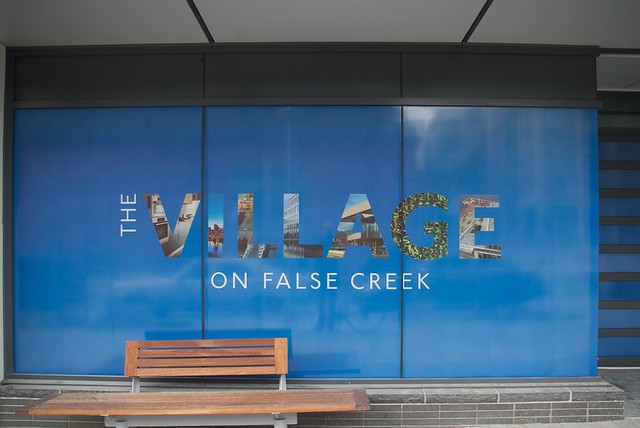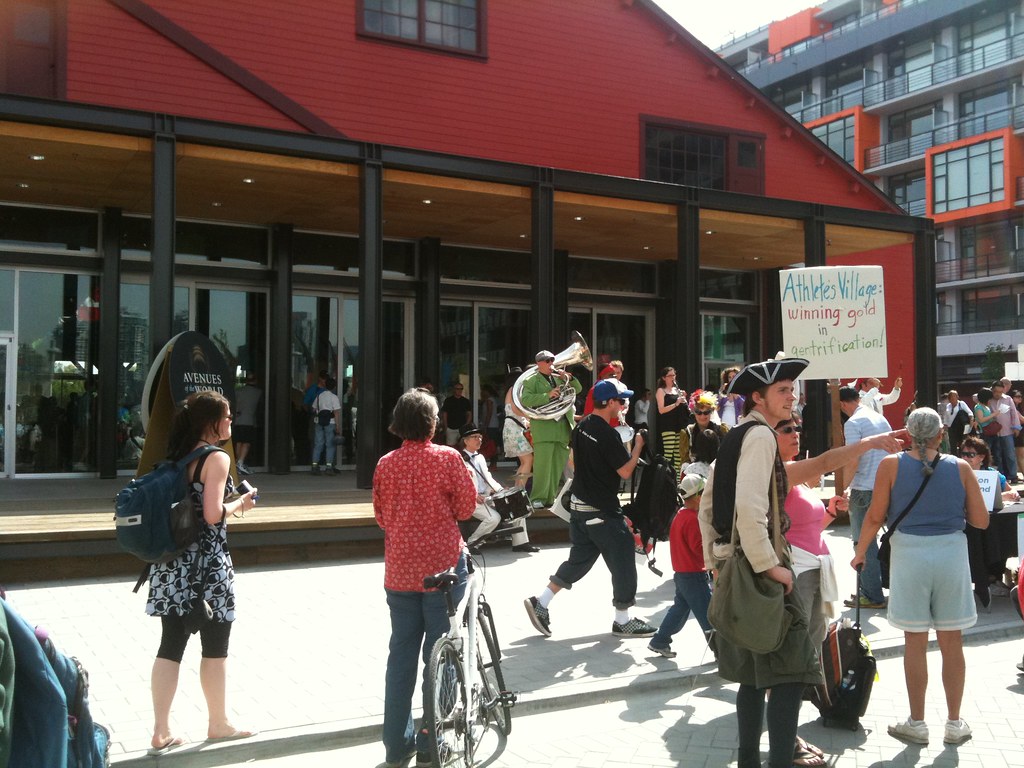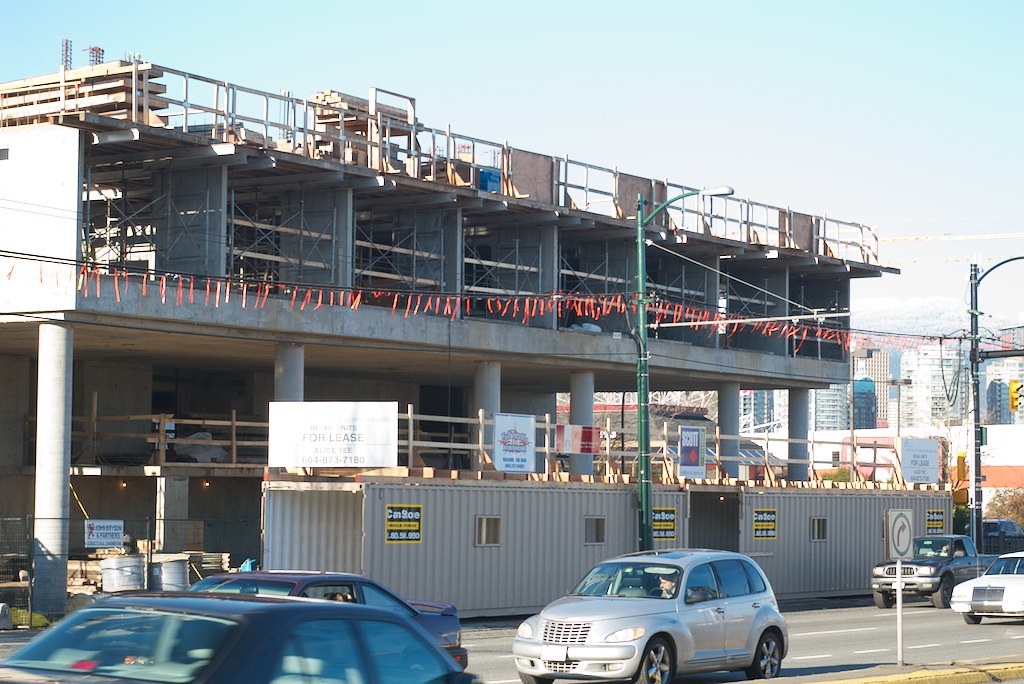Condo marketer Bob Rennie claims to have sold 128 of 230 condo units up-for-grabs in the latest round of sales at the Olympic Village. Similar to last week’s re-launch of the The Village on False Creek, where Bob Rennie hired people to wait in line at the sales centre, Rennie’s press conference earlier today was a charade. Again this week, people were “hired by the realtor,” according to one hiree (see video here).
Rennie’s strategy was quite simple: over the past few weeks and months, he asked his speculator and real-estate agent friends how much they would be willing to pay for some units. Then, he convinced the City to let him sell-off 230 units at a discounted price to his speculator friends (who will not live in them). Then he planned to announce the sales as though these were actual families buying the units.
This ruse was the only way Bob Rennie could convince the public that the units were still viable as luxury condominiums. But the condo units, two thirds of which were promised to Vancouver’s poor as part of the Olympic housing legacy, will remain empty.
Rennie’s hope is that the hype will “lift the fog” from the “ghost town,” and that actual residents will then purchase the units now owned by Rennie’s speculator friends. Eventually, if people move into the units, Rennie can try to sell the remainder of the units not-yet on the market.
To reinforce the hype and create headlines, real-estate agents were paid to wait in line outside the sales office last week. Last week a similar attempt to use the media to draw interest in a real-estate development in Burnaby was called out.



